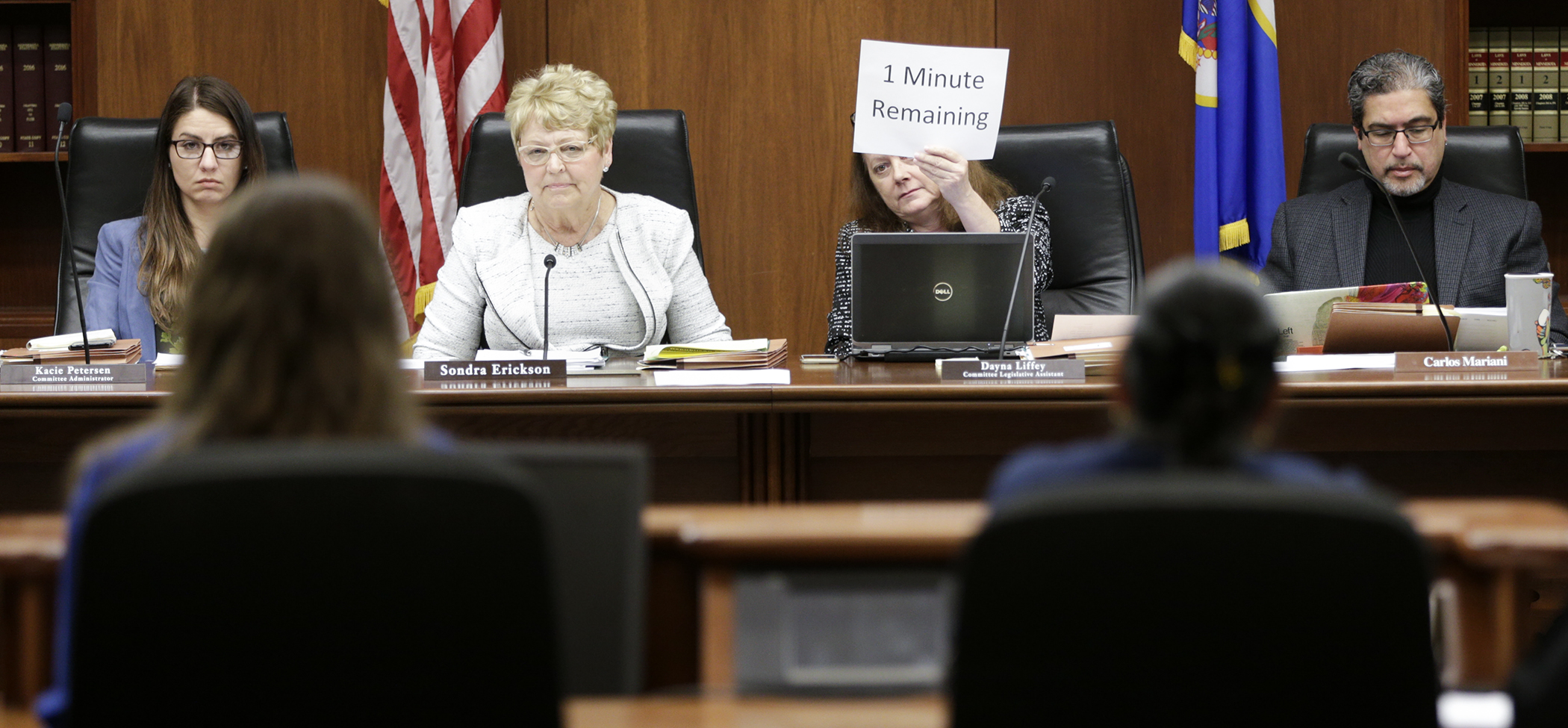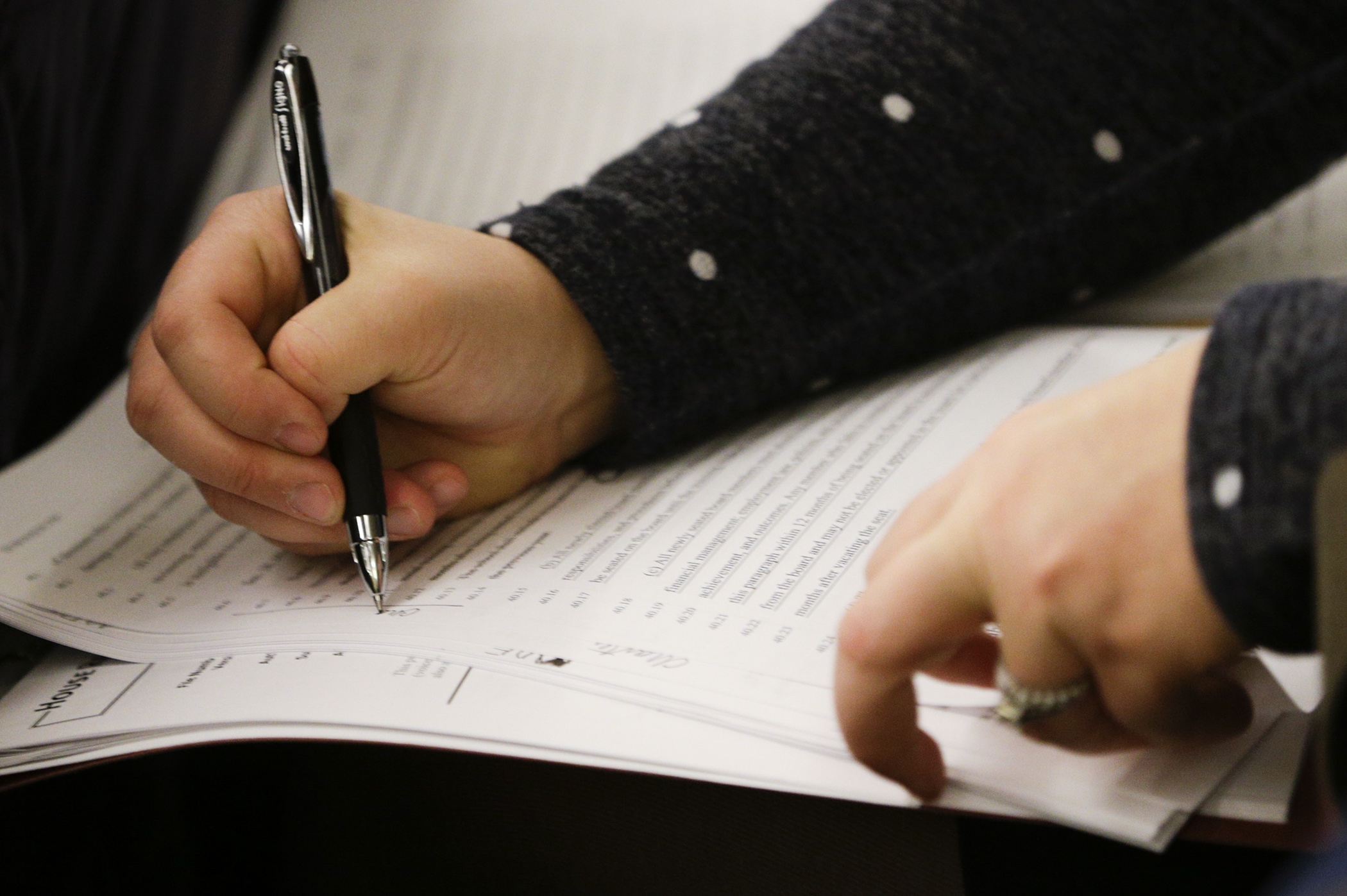Reducing student suspensions at core of omnibus E-12 bill

Changing how school administrators handle student disciplinary matters is one of many considerations in this year’s omnibus E-12 education policy bill.
The House Education Innovation Policy Committee began review Tuesday of HF3315, sponsored by Rep. Sondra Erickson (R-Princeton). Amendments are expected to be offered and action taken on the bill at the committee’s Thursday meeting. The companion bill, SF3086, awaits action by the Senate E-12 Policy Committee. Sen. Eric Pratt (R-Prior Lake) is the sponsor.
The proposal to change school disciplinary policies would require administrators to intervene and redirect a student’s negative or disruptive behavior, using non-exclusionary practices, rather than turning toward suspension or expulsion.
It’s a move that several student advocacy groups and teachers are cheering, saying suspension and expulsion is often overused and ineffective at correcting student behaviors.
“Simply put, if students are in class they are learning, and if they are not, they’re not learning,” said Abbie Finger, a Minneapolis Public Schools teacher.
“Too often there is an overreliance on suspension for less serious, subjective infractions, such as disruption,” Finger said. “Suspensions are not an effective deterrent and often make students feel less engaged because we are sending the message that school is not for them.”
Alternatives to suspension — or non-exclusionary disciplinary practices — include social and emotional services, school-linked mental health services, social work services, referrals for special education, academic screening and alternative education services.
Rep. JoAnn Ward (DFL-Woodbury) was happy to see that the Legislature is emphasizing restorative practices over exclusionary practices.
“That’s a huge part of my background, and I have years of work in schools using restorative practices, so I’m just delighted to see it being embedded in schools,” she said.
When school administrators choose to dismiss a student from school, provisions in the bill would require teachers provide suspended students with the opportunity to complete all schoolwork they missed during their absence. Additionally, any student suspended more than five consecutive days would need to be provided with alternative education services, such as online learning.
 An audience member makes notes as they follow along with the staff summary of the delete-all amendment to HF3315, the omnibus E-12 education policy bill in the House Education Innovation Policy Committee. Photo by Paul Battaglia
An audience member makes notes as they follow along with the staff summary of the delete-all amendment to HF3315, the omnibus E-12 education policy bill in the House Education Innovation Policy Committee. Photo by Paul BattagliaIn instances of expulsion, the student, parents and school district would enter into a student-withdrawal agreement that could not exceed 12 months. The school administrator would also have to prepare and enforce a readmission plan.
Education Commissioner Brenda Cassellius said that while she’s supportive of the plan, she suggests modifications to the readmission language.
“I do believe that we need some stronger language around threat assessments upon return … so there is a guarantee that students who are posing a risk to themselves or others do get some sort of follow up and support,” she said.
Advocates of non-exclusionary practices said provisions in the bill are a step in the right direction. However, Finger also encouraged lawmakers to appropriate funding for professional development to help teachers learn restorative practices and trauma-informed techniques.
“Reframing how we think about school discipline is too important to become a buzzword, and my fear is if some provisions are encouraged and not required they will join other well-meaning education narratives that didn’t fully succeed because they weren’t carried through by everyone,” she said.
Other notable provisions in the bill would:
- allow a student to be excused from school for up to three days to participate in any activity necessary to join a branch of the United States armed forces;
- require school districts to include substance misuse prevention instruction in health curriculum in grades 5, 6, 8, 10 and 12;
- require school districts to include sexual exploitation prevention instruction in a health curriculum;
- require the Department of Education to develop an academic achievement rating system that assigns each school and district a star rating and an academic achievement score based on measures used to determine the star rating. The star rating and score must be reported annually;
- impose new requirements on technology providers, and on schools that contract with technology providers, to protect student data;
- clarify that a school district may collect unpaid meal debt as long as reminders do not demean or stigmatize a child participating in the school lunch;
- require a school that finds the presence of lead in any water source to provide an alternative source of water, such as bottled water, if another acceptable water source is not within a reasonable distance;
- establish a special education working group;
- require that school districts administer Minnesota Comprehensive Assessments as late in the school year as possible, and provide parents and teachers with student preliminary test scores within 30 days of testing;
- require screening students for characteristics associated with dyslexia in coordination with other early childhood screenings;
- expand the definition of textbooks to include a teacher’s edition, or teacher’s guide, that accompanies the textbook used by students; and
- require a school transmitting a transferring student’s educational records to a new school to include information about the student’s withdrawal and services he or she needs to prevent inappropriate behavior from reoccurring.
What's in the bill?
The following are selected bills that have been incorporated in part or whole into the omnibus E-12 education policy bill:
- HF1420 (Erickson)
- HF1507 (Lucero)
- HF1580 (Erickson)
- HF2724 (Jurgens)
- HF2750 (Bahr)
- HF2752 (Garofalo)
- HF2768 (Jessup)
- HF2788 (Dettmer)
- HF2843 (Daniels)
- HF2846 (Christensen)
- HF2859 (Erickson)
- HF3013 (Runbeck)
- HF3178 (Peterson)
- HF3182 (Erickson)
- HF3207 (Erickson)
- HF3361 (Kunesh-Podein)
Related Articles
Search Session Daily
Advanced Search OptionsPriority Dailies
Ways and Means Committee OKs proposed $512 million supplemental budget on party-line vote
By Mike Cook Meeting more needs or fiscal irresponsibility is one way to sum up the differences among the two parties on a supplemental spending package a year after a $72 billion state budg...
Meeting more needs or fiscal irresponsibility is one way to sum up the differences among the two parties on a supplemental spending package a year after a $72 billion state budg...
Minnesota’s projected budget surplus balloons to $3.7 billion, but fiscal pressure still looms
By Rob Hubbard Just as Minnesota has experienced a warmer winter than usual, so has the state’s budget outlook warmed over the past few months.
On Thursday, Minnesota Management and Budget...
Just as Minnesota has experienced a warmer winter than usual, so has the state’s budget outlook warmed over the past few months.
On Thursday, Minnesota Management and Budget...